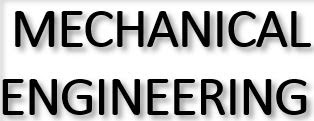Hi Guys today we leran another new topic Chain Drive Advantage and Disadvantages So let's start further information,
Chain Drive Advantage and Disadvantages
A chain drive is a mechanism used to transmit power between two shafts in machinery. Here overview'
Components: A chain drive typically consists of two sprockets (wheels with teeth), and a roller chain that meshes with the teeth of the sprockets.
Power Transmission: When one sprocket is turned, it drives the chain, causing the other sprocket to rotate. This allows power to be transmitted from one shaft to another.
Chain is hold in between gear drive and belt drive. Chains are made of metal and occupy lesser space an give constant velocity ratios.
 |
| Chain Drive |
In belts they are used for long centre distances.
Types of chain drive
Advantages:-
1. No effect of overload on the velocity ratio.
2. Chains occupy less space as these are made of metals.
3. Oil or grease on surfaces does not affect the velocity ratio.
4. Efficiency: High transmission efficiency due to no slip.
5. Constant velocity ratio.
6. It is positive drive.
7. Through one chain only, motion can be transmitted to several Shafts.
8. Durability: They are robust and can withstand high loads and speeds.
9. Versatility: Chain drives can be used in various applications and environments, including those with high temperatures or corrosive conditions.
Disadvantages:-
1. Lubrication of parts is required.
2) Maintenance Requirements: Chain drives require regular lubrication to reduce wear and prevent corrosion. Without proper maintenance, chains can stretch, wear out, or even break prematurely, leading to downtime and increased maintenance costs.
3) Noise and Vibration: Chain drives can generate noise and vibration during operation, especially at higher speeds. This can be a concern in applications where noise levels need to be minimized, such as in residential areas or quiet work environments.
4) Limited Lifespan: Despite regular maintenance, chains have a finite lifespan and will eventually wear out over time. Factors such as operating conditions, load, and proper tensioning can affect the lifespan of the chain. Replacement of chains and sprockets can be costly and time-consuming.
5) Potential for Slip: In some cases, chain drives may experience slippage between the chain and sprockets, especially if the chain tension is not properly maintained or if there is excessive wear. Slip can result in inaccurate speed or torque transmission, affecting the performance of the driven machinery.
6) Environmental Sensitivity: Chain drives are exposed to the surrounding environment, making them susceptible to contamination from dust, dirt, moisture, and other debris. Environmental factors can accelerate wear and corrosion, requiring more frequent maintenance and replacement.
7) Space Requirements: Chain drives require adequate space for installation and maintenance, including clearance for the movement of the chain and access for lubrication. In tight or constrained spaces, chain drives may not be suitable or may require additional design considerations.
8) Safety Concerns: In applications where chains are exposed and accessible, there is a risk of injury from entanglement or pinch points. Proper guarding and safety measures should be implemented to minimize the risk of accidents.
Despite these disadvantages, chain drives remain widely used in various industries due to their high efficiency, reliability, and versatility. However, it's essential to carefully consider the specific requirements of each application and address any potential drawbacks through proper design, maintenance, and safety measures.
Applications of Chain Drive :
1) Chain drives are commonly used in bicycles, motorcycles, industrial machinery, and automotive engines.
2) They are also found in conveyor systems, agricultural equipment, and power transmission systems.
So in this Article we learned the topic Chain Drive Advantage and Disadvantages hope you understand well.
Any query comment below. Thanks for reading.


.jpg)



